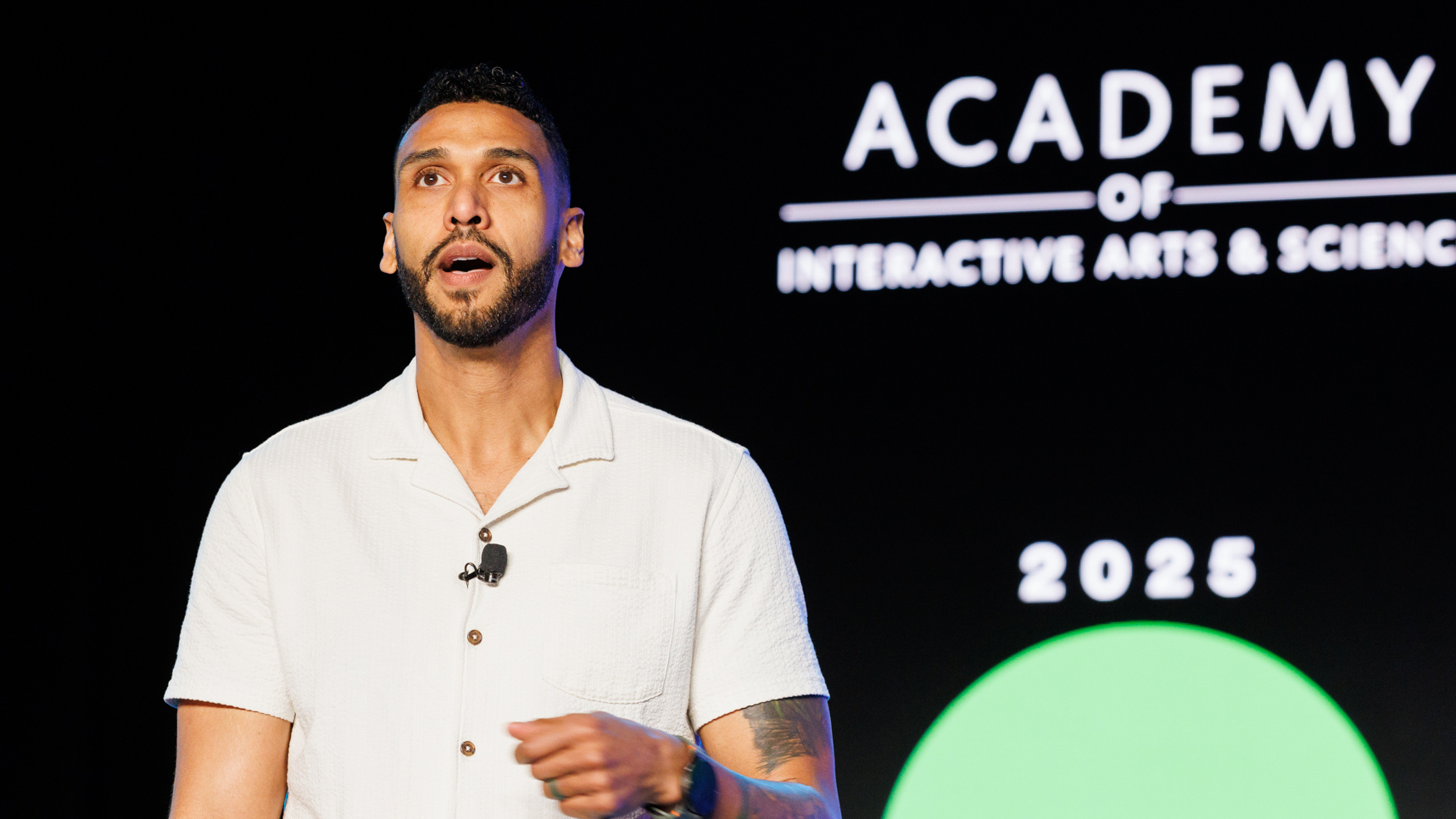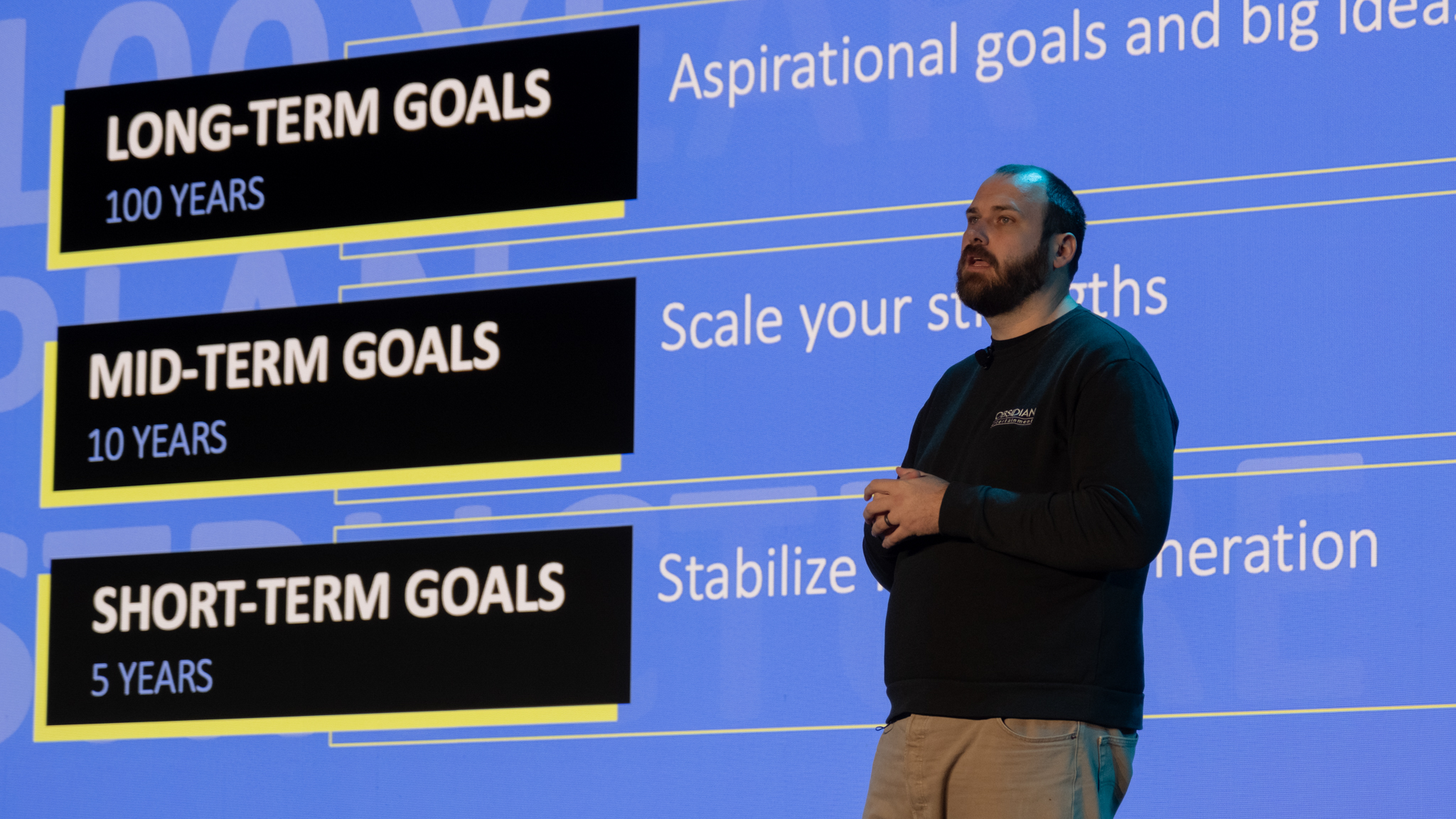Obsidian says it won't chase huge profits or grow aggressively, and that's how it's going to last 100 years in the RPG business: 'Are we serious? Yes'
The Avowed studio expects each game to be a "mild success" and budgets accordingly, say company leaders who want it to reach its 100th birthday.

Keep up to date with the most important stories and the best deals, as picked by the PC Gamer team.
You are now subscribed
Your newsletter sign-up was successful
Want to add more newsletters?

Every Friday
GamesRadar+
Your weekly update on everything you could ever want to know about the games you already love, games we know you're going to love in the near future, and tales from the communities that surround them.

Every Thursday
GTA 6 O'clock
Our special GTA 6 newsletter, with breaking news, insider info, and rumor analysis from the award-winning GTA 6 O'clock experts.

Every Friday
Knowledge
From the creators of Edge: A weekly videogame industry newsletter with analysis from expert writers, guidance from professionals, and insight into what's on the horizon.

Every Thursday
The Setup
Hardware nerds unite, sign up to our free tech newsletter for a weekly digest of the hottest new tech, the latest gadgets on the test bench, and much more.

Every Wednesday
Switch 2 Spotlight
Sign up to our new Switch 2 newsletter, where we bring you the latest talking points on Nintendo's new console each week, bring you up to date on the news, and recommend what games to play.

Every Saturday
The Watchlist
Subscribe for a weekly digest of the movie and TV news that matters, direct to your inbox. From first-look trailers, interviews, reviews and explainers, we've got you covered.

Once a month
SFX
Get sneak previews, exclusive competitions and details of special events each month!
In a talk at this week's D.I.C.E. Summit, an industry conference whose theme this year is sustainability, Obsidian Entertainment VP of operations Marcus Morgan and VP of development Justin Britch said they want the Fallout: New Vegas, Pillars of Eternity, and most recently Avowed studio to make it to its 100th birthday. Obsidian is 22 years old now, so that's 78 to go, and the VPs think it can get there by staying lean, holding onto talent, setting realistic sales expectations, and not going all-in on delivering huge profits.
Obsidian's 100-year plan isn't—and I hope this isn't too disappointing—a decade-by-decade breakdown of future projects that ends somewhere around Fallout: Old Vegas (I'm assuming that pre-apocalyptic settings are popular in 2103). It's more of a thought exercise, but Morgan and Britch said that they genuinely want Obsidian to continue beyond their lifespans. "Are we serious? … Yes," said Morgan. And why not? Nintendo was founded in 1889.
One of the pillars of the plan is staying "lean and invested," meaning small enough that none of Obsidian's employees feel like a cog in a machine. Morgan and Britch said that in recent years they'd been considering opening multiple international offices, but in the end decided to partner with existing studios rather than risk weakening Obsidian's culture by getting too big.
Leanness can also refer to Obsidian's games: It doesn't aim for unprecedented scale or the most advanced graphics, and before it greenlights a game, Britch says the studio spends a lot of time determining how much to invest in the project with the assumption that it will be a "mild success," not a smash hit.
They didn't call out any examples themselves, but the duo was clearly setting themselves apart from companies that pour enormous budgets into long and turbulent development cycles and then announce that the resulting game underperformed because it didn't immediately sell tens of millions of copies. Dragon Age: The Veilguard is the most recent high-profile example of an expensive RPG that didn't meet its owner's sales expectations, and EA cut jobs at BioWare after the miss.
(Big bets do sometimes pay off, though: Baldur's Gate 3 comes to mind as a recent example, though I can't say exactly how its scale and budget compares to Avowed's, and Cyberpunk 2077's launch troubles notwithstanding, CD Projekt continues to make a case for RPGs that take a long time and a lot of money to make.)

Obsidian has also laid off staff at times in the past, and has been in a precarious position at least once, but has appeared stable since Microsoft acquired it in 2018. That hasn't been the case for Microsoft's more recent acquisitions, which have been hammered with layoffs and studio closures from their new Xbox bosses.
Keep up to date with the most important stories and the best deals, as picked by the PC Gamer team.
The difference there can't be attributed to some secret sauce of Obsidian's—it's a much smaller company than Activision Blizzard or Bethesda, which Microsoft clearly had different plans for—but the studio's strong showing at a time when much of the industry seems to be reenacting Homer's jump over Springfield Gorge does lend credibility to the idea that Obsidian has sustainability ideas worth listening to.
Obsidian has released three games in the 2020s so far: survival game Grounded (we reviewed it positively), narrative adventure game Pentiment (we reviewed it positively), and now Avowed (another good one). Some studios don't even announce a new game in that amount of time.
Among other things not mentioned here, Morgan and Britch's plan includes building institutional knowledge by aiming for "the lowest turnover rate in the industry" and continuing to release the kinds of games they're known for (player freedom, worldbuilding, all of that) at a consistent pace, "not rushed, but often."
Britch described his vision for Obsidian as a 1973 VW bus with a trunk full of tools and a manual that's being continuously annotated, and summed up the plan by saying that Obsidian is more or less going to keep doing what it's been doing, "not trying to grow aggressively, expand our team size, or make super profitable games." It's aiming for somewhat profitable games, then, made well and at a consistent pace.

Tyler grew up in Silicon Valley during the '80s and '90s, playing games like Zork and Arkanoid on early PCs. He was later captivated by Myst, SimCity, Civilization, Command & Conquer, all the shooters they call "boomer shooters" now, and PS1 classic Bushido Blade (that's right: he had Bleem!). Tyler joined PC Gamer in 2011, and today he's focused on the site's news coverage. His hobbies include amateur boxing and adding to his 1,200-plus hours in Rocket League.

